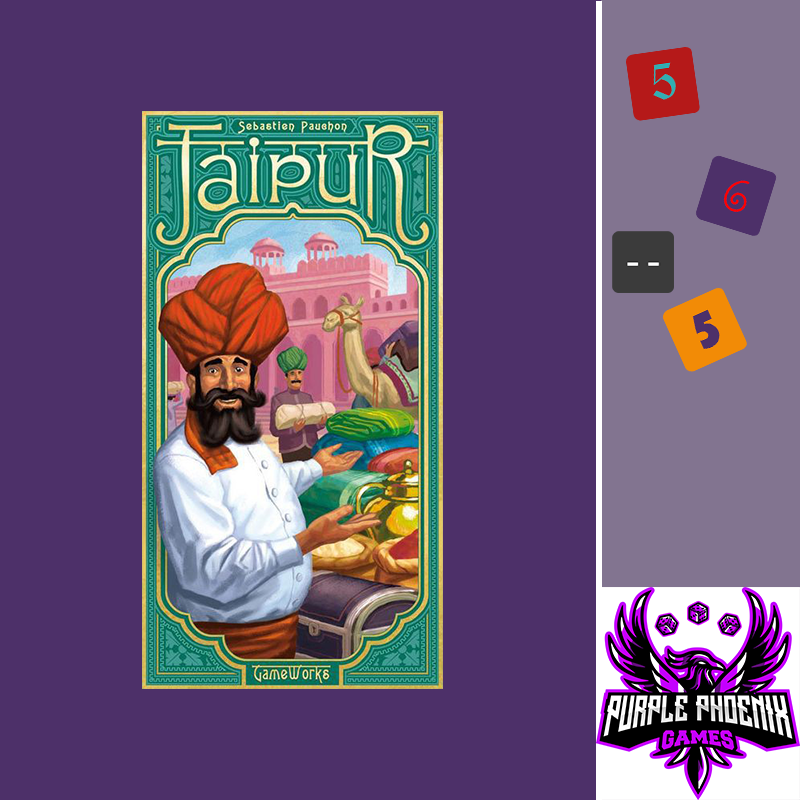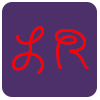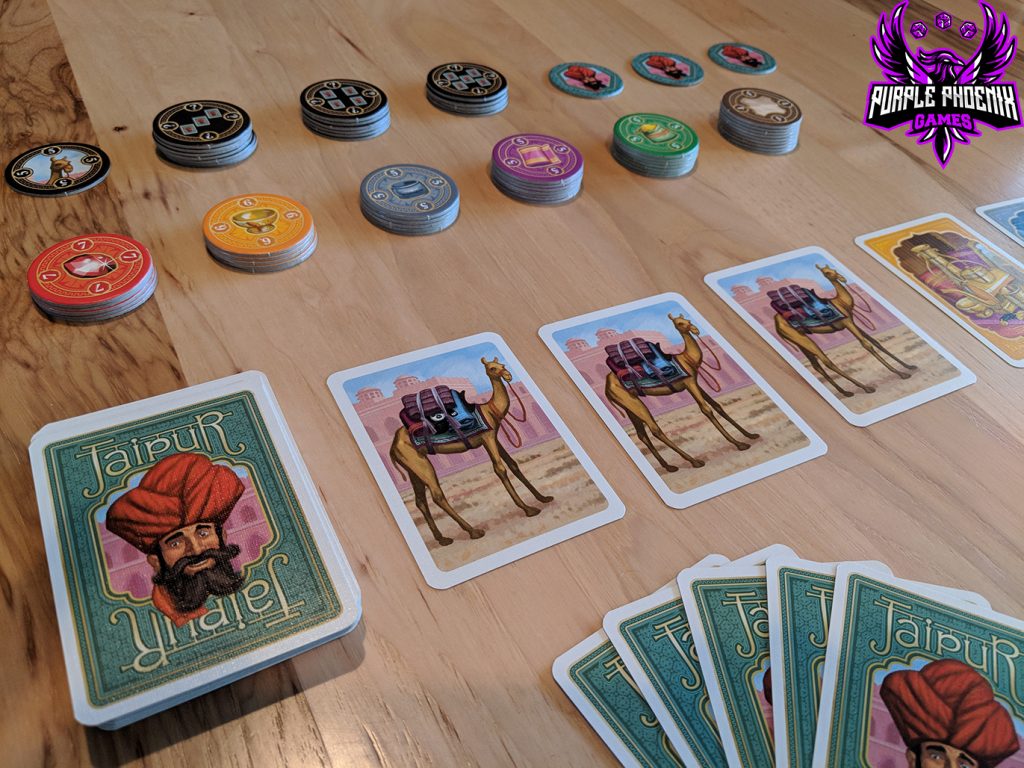
Finding a time when the entire group can get together to game can be rare – there always seems to be at least one person who cannot come. But fear not! Low attendance at any given game night does not automatically make it a dud! There are many excellent games for only two players, and that brings us to Jaipur!
| Jaipur (2009) | GameWorks |
| 2 Players | 30 minutes |
| Ages 12+ | BGG Weight – 1.52 / 5 |
Congratulations! You have become one of the most powerful traders in the Indian city of Jaipur – nobody can strike a deal quite like you! Only the best merchant will have the privilege of trading directly with the Maharajah (the city leader), and that is definitely you! Or at least, it was until a new competitor showed up and started swiping your customers… Will you give up your position willingly? Of course not! Through cunning strategy, you can prove that you are still the best trader the city has to offer – so let the competition begin!
In Jaipur, you and your opponent take turns buying, trading, and selling goods and camels for money. Out-sell your opponent in two out of three rounds to become the greatest tradesperson! Collect sets of the same goods to maximize your earnings, and use your camels wisely in trades as you try to anticipate the market trends. On your turn, you can take one of four actions: 1. Take a single good from the market, 2. Take all of the camels from the market, 3. Exchange goods/camels from your hand for multiple goods in the market, or 4. Sell goods. What will your strategy be? Monopolize the market in a specific good, or dabble in all goods? Try to anticipate your opponent’s strategy and throw a wrench in their plans, or mind your own business? No matter what you choose, strategy is the key to success in Jaipur, so make it count!
Jaipur is probably my favorite two-player game to date. The rules are simple enough, the mechanics (card drafting and set collection) are straight-forward, and it requires enough strategy to make it a fun challenge! Since it is a specifically two-player game, everything you do directly impacts your opponent. On your turn, not only are you trying to think of the best move for you to make, but you must also be thinking of what your opponent is trying to accomplish. If a couple of rounds pass and I see my opponent picking up silver goods, I can probably guess they’re hoping to make bank by selling a complete set. So do I pick up the next silver I see on my turn? Or do I cash in the set of diamonds that I’ve been secretly picking up each round? My strategy is constantly changing based on what cards appear in the market at any given time, and that is what elevates this technically simple game for me!
The only grievance for me with Jaipur has to do with the market distribution. The market cards are re-shuffled at the end of each round, and sometimes the shuffling is not balanced. I have lost many rounds because I am forced to take low-scoring goods or camels from a saturated market, only to reveal high-scoring goods for my opponent to take on their turn. Ultimately, that is not an issue with the game, but an issue with my poor card-shuffling ability. If anything, I try to see it as a strategic challenge – how can I best use these lowly goods to balance out the better cards my opponent has picked up? Nothing is a given in this game, and the market can completely change in a single turn!
If you want a quick but engaging game, look no further than Jaipur. It’s a solid two-player game that deserves more love! Purple Phoenix Games gives it a shiny 16 / 18.

